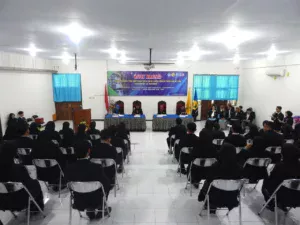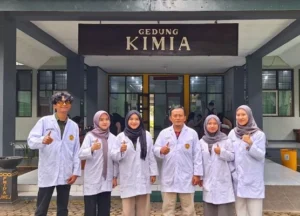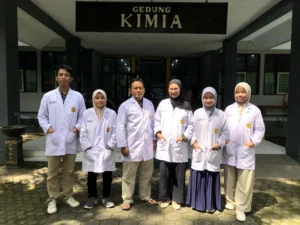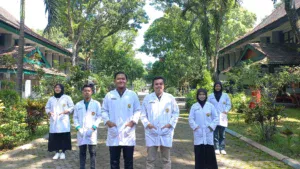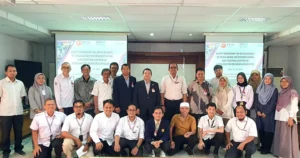 Our PKM-RE team from the Chemistry Study Program, Faculty of Mathematics and Natural Sciences, Jember University, has successfully received funding from the Ministry of Education and Culture, Research, and Technology. Our PKM-RE team, consisting of Lina Sun Haji as team leader and members Choirun Nisa Anida, Caleysda Aprilianti, Himayah Izmi Fauziyyah, and Diah Ayu Pitaloka, has carried a theme entitled Test strip Berbasis Metil Merah Untuk Tes Cepat, Praktis, dan Ekonomis Senyawa Formalin dalam Sampel Ikan atau dapat disebut dengan Trifommer (Test strip Formalin Berbasis Metil Merah). Our teamwork program is accompanied by Dr. . Zulfikar, Ph.D., who helps, supervises, and directs the smooth performance of teamwork.
Our PKM-RE team from the Chemistry Study Program, Faculty of Mathematics and Natural Sciences, Jember University, has successfully received funding from the Ministry of Education and Culture, Research, and Technology. Our PKM-RE team, consisting of Lina Sun Haji as team leader and members Choirun Nisa Anida, Caleysda Aprilianti, Himayah Izmi Fauziyyah, and Diah Ayu Pitaloka, has carried a theme entitled Test strip Berbasis Metil Merah Untuk Tes Cepat, Praktis, dan Ekonomis Senyawa Formalin dalam Sampel Ikan atau dapat disebut dengan Trifommer (Test strip Formalin Berbasis Metil Merah). Our teamwork program is accompanied by Dr. . Zulfikar, Ph.D., who helps, supervises, and directs the smooth performance of teamwork.
Formalin can also be known as formaldehyde, which is a chemical compound that is often used as a preservative for corpses in the embalming process. Formalin can be used as a preservative for corpses because it helps prevent body decomposition due to the nature of formalin, which can stop the growth of bacteria and fungi. However, formalin is often misused when preserving food so that it does not rot quickly. One of the foods that is often preserved is fish. Formalin is a food that is strictly prohibited from being added to food because it can interfere with the performance of the body’s organs. Continue reading

